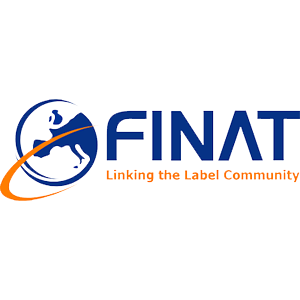Sector-harmonized approach to life cycle assessment
For FINAT and TLMI, two large industry associations in the self-adhesive label industry, PRé developed a harmonized approach to LCA that can be used by the FINAT and TLMI members to create a common understanding of LCA and the hotspots within the label supply chain.
About
Labels play a critical role in communication and marketing. Growing concern for the environment and the fact that labels are highly visible have led to an increasing number of requests from customers and stakeholders for insight into the environmental burdens of labels. Label companies are making efforts to respond to their customers’ requests. As a result, various actors in the labelling sector are looking into or already doing life cycle assessment (LCA) studies to measure their environmental performance. However, this has led to the adoption of several different approaches to LCA in the sector.
Without guidance and standardization, these different methods could easily have seemingly contradictory results. In addition, the efforts to produce these analysis could form a large burden on suppliers, some of whom may work for several labeling companies. For this reason two large industry associations, FINAT and TLMI, asked PRé to develop a harmonized approach that would be available to all their members.
Challenge
TLMI is the leading association for the narrow web tag, label and packaging industries in North America. FINAT is an international organization recognized as the voice of the label industry, with approximately 500 members in 54 countries around the world. These associations recognized the potential risks in using a variety of approaches and decided that the label industry needs:
- A common understanding of LCA and the hotspots within the label supply chain.
- A sector-harmonized LCA approach.
- Guidance and training in LCA for TLMI/FINAT members.
FINAT and TLMI asked PRé to help them develop this desired sector-harmonized approach.
Solution
PRé took a stepwise approach to meet the project objectives. First, we conducted a survey among TLMI and FINAT members to gain insight into the state of the practice within the self-adhesive labeling sector. From this, we learned that sustainability is an important topic within the labeling industry but that the majority of the companies are not yet familiar with LCA.
Second, we researched the state of the art in the self-adhesive labeling sector and related industries. We conducted two case studies, one for a paper self-adhesive label with production locations in the EU and one on a polypropylene self-adhesive label with production locations in the U.S. The case studies provided insight into the environmental impact of these self-adhesive labels and the environmental hotspots in their supply chains. This also led to insight into improvement opportunities within the supply chain.
The insights from these case studies were used as input for creating the sector-harmonized approach, which was finally presented as an accessible document. This document provides a shared approach on how to LCAs for self-adhesive labels. It provides business guidance about the relevant ‘building blocks’ for defining and conducting an LCA, such as the functional unit, data sources and system boundaries. In addition, PRé developed a guidance document on what LCA is and how it can be used. We also trained TLMI and FINAT members in the basic principles of LCA, how it can be used and which steps are involved.

Benefits
The collaboration between FINAT, TLMI and PRé resulted in:
- Two case studies that provide insight into the environmental hotspots in the self-adhesive supply chain.
- Insight into the state of the practice and state of the art in the self-adhesive label industry.
- A sector-harmonized approach so:
- The sector takes a step towards a level playing field.
- Customers can trust the quality and completeness of LCAs that follow this approach.
- All members of FINAT and TLMI have a basis to do LCAs, even those who don’t have a sustainability team or program in place.
PRé has supported us expertly throughout the process of establishing our harmonized sector approach and the creation of the guidance documents, acting in a complex environment involving actors both in Europe and the USA. We appreciate PRé’s open and communicative approach and highly recommend their services.

Mark Macaré
Public Affairs Manager, FINAT
